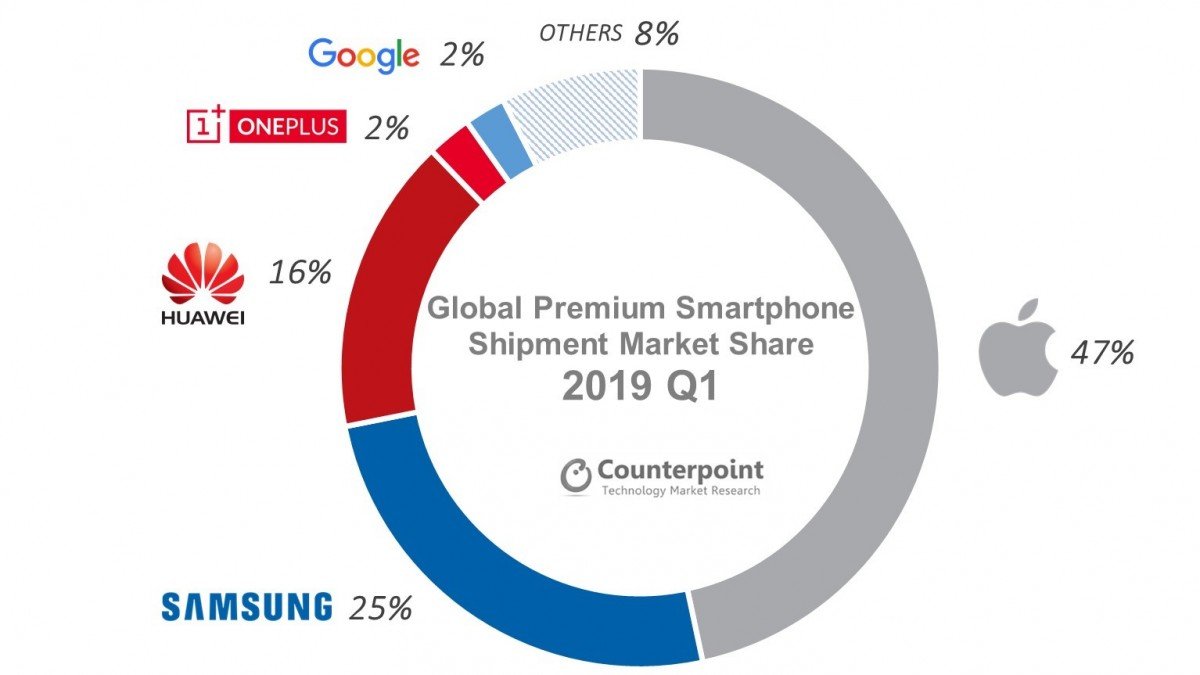
The back of an iconic design; its iconic designer is heading out of Apple. CC-licensed photo by Carl Berkeley on Flickr.
You can sign up to receive each day’s Start Up post by email. You’ll need to click a confirmation link, so no spam.
A selection of 10 links for you. Got 99 problems but finding a replacement head of design ain’t one. I’m @charlesarthur on Twitter. Observations and links welcome.
Jony Ive, iPhone designer, announces Apple departure • Financial Times
Tim Bradshaw:
»
Sir Jonathan is setting up his own new venture, a creative business called LoveFrom, with Apple as its first client. The transition will begin later this year, with LoveFrom launching fully in 2020.
“While I will not be an [Apple] employee, I will still be very involved — I hope for many, many years to come,” Sir Jonathan told the FT in an exclusive interview. “This just seems like a natural and gentle time to make this change.”
The departure of the world’s most famous industrial designer and the custodian of the entire Apple aesthetic — from its hardware and software to its physical architecture — will come as a shock to its investors and customers. Many see Sir Jonathan as one of its most crucial assets as it looks beyond the iPhone into a new phase of products and services.
Tim Cook, Apple’s chief executive, sought to play down the changes as an “evolution”, pointing to an expanded group of in-house designers that is “the strongest it’s ever been”.
“We get to continue with the same team that we’ve had for a long time and have the pleasure of continuing to work with Jony,” Mr Cook told the FT. “I can’t imagine a better result.”
«
So Apple’s going to be one of his clients. Which makes sense of a sort, but given the way that the ID (industrial design) team has determined the direction of the company for years and years, it will be up to Apple to prove that this isn’t going to be a huge disjointing change. The only way it couldn’t be is if Ive has been of diminishing importance over the past few years, and now someone else is going to step up and lead the ID team.
One must expect there will be a power struggle too. Apple’s press release says “Design team leaders Evans Hankey, vice president of Industrial Design, and Alan Dye, vice president of Human Interface Design, will report to Jeff Williams, Apple’s chief operating officer.” Going to be quite the spectator sport seeing which of those two prevails.
unique link to this extract
Google’s new reCaptcha has a dark side • Fast Company
Katharine Schwab:
»
According to two security researchers who’ve studied reCaptcha, one of the ways that Google determines whether you’re a malicious user or not is whether you already have a Google cookie installed on your browser. It’s the same cookie that allows you to open new tabs in your browser and not have to re-log in to your Google account every time. But according to Mohamed Akrout, a computer science PhD student at the University of Toronto who has studied reCaptcha, it appears that Google is also using its cookies to determine whether someone is a human in reCaptcha v3 tests. Akrout wrote in an April paper about how reCaptcha v3 simulations that ran on a browser with a connected Google account received lower risk scores than browsers without a connected Google account. “If you have a Google account it’s more likely you are human,” he says. Google did not respond to questions about the role that Google cookies play in reCaptcha.
With reCaptcha v3, technology consultant Marcos Perona and Akrout’s tests both found that their reCaptcha scores were always low risk when they visited a test website on a browser where they were already logged into a Google account. Alternatively, if they went to the test website from a private browser like Tor or a VPN, their scores were high risk.
To make this risk-score system work accurately, website administrators are supposed to embed reCaptcha v3 code on all of the pages of their website, not just on forms or log-in pages. Then, reCaptcha learns over time how their website’s users typically act, helping the machine learning algorithm underlying it to generate more accurate risk scores.
«
But that also means Google is seeing everything you do. Okayyy but.. it does anyway?
unique link to this extract
Trolls target online polls following first Democratic presidential debate • NBC News
Ben Collins and Ben Popken:
»
Users from pro-Trump communities on 4chan and Reddit implored fellow members to vote for lower-polling candidates in online polls, specifically Tulsi Gabbard and Bill de Blasio, in the hours after Wednesday’s Democratic debate — a sign that digital manipulation efforts related to U.S. politics and elections remain very much alive.
Users on 4chan’s anonymous far-right /pol/message board repeatedly posted links to polls across the web, encouraging one another to “blow the polls out” for Gabbard, the congresswoman from Hawaii who has developed a substantial support base among many of its users.
The posts pointed users toward polls on national news websites like the Drudge Report, The Washington Examiner, and Heavy.com, but also polls from local news providers like NJ.com, which posts from several newspapers in the state.
“GIVE HER YOUR POWER,” read one 4chan post from 1 a.m. Thursday, pointing to a screenshot of the still-active Drudge poll showing Gabbard leading.
«
Online polls are a trapdoor to bad outcomes. Is anyone seriously still running online polls, let alone believing them?
unique link to this extract
Why China is winning the electric bus race • CityLab
Linda Poon:
»
The biggest takeaway [from the World Enterprise Institute report] is the cities that want to hop aboard the e-bus revolution need to completely rewire their thinking about electricity and vehicles. “Understanding that electric vehicles are about more than just vehicles is one of the hardest barriers for people to cross over, in both the energy and transportation sectors,” says Camron Gorguinpour, one of the lead authors of the twin reports. “It’s hard on people who have gone through their whole careers thinking that vehicles and electrical systems are [separate] to now internalize that these things are one in the same.”
That means when cities consider adopting electric buses, they need to understand the power grid upgrades and charging infrastructure required, and challenges associated with that. Failure to do so is the most common mistake, according to Gorguinpour. Many cities just set up their charging stations thinking that things would “work themselves out.”
That’s why he says one of the most overlooked stories from Shenzhen’s experience is the city’s long process in setting up the charging infrastructure to support more than 16,000 electric buses. Each bus has a range of about 124 miles on a single charge of 252 kilowatt hours (KWh). In total, the fleet can eat more than 4,000 megawatt-hours (MWh). For comparison’s sake, 1 MWh is enough to power about 300 homes for an hour. “That’s an insane amount of power required, not to mention real estate,” he says.
«
99% of the world’s 425,000 electric buses are in China.
unique link to this extract
Streaming TV is about to get very expensive – here’s why • The Guardian
Stuart Heritage:
»
Right now, things are just about manageable: if you have a TV licence, a Netflix subscription, an Amazon subscription and a Now TV subscription, you are pretty much covered – but things are about to take a turn for the worse.
In November, Disney will launch Disney+, a streaming platform that will not only block off an enormous amount of existing content (Disney films, ABC shows, Marvel and Pixar films, Lucasfilm, The Simpsons and everything else made by 20th Century Fox), but will also offer a range of new scripted Marvel shows that will directly inform the narrative of the Marvel Cinematic Universe. Essentially, if you want to understand anything that happens in any Marvel film from this point onwards, you’ll need to splash out on a Disney+ subscription.
Apple will also be entering the streaming market at about the same time, promising new work from Sofia Coppola, Jennifer Aniston, Oprah Winfrey, Reese Witherspoon, Brie Larson, Damien Chazelle and Steven Spielberg. In the next three years, Apple will spend $4.2bn on original programming, and you won’t get to see any of it if you don’t pay a monthly premium.
There are so many others. NBCUniversal is pulling its shows from Netflix for its own platform. Before long, Friends is likely to disappear behind a new WarnerMedia streaming service – along with Lord of the Rings films, the Harry Potter films, anything based on a DC comic and everything on HBO – that it is believed will cost about £15 a month. In the UK, the BBC and ITV will amalgamate their archives behind a service called BritBox. The former Disney chairman Jeffrey Katzenberg is about to launch a platform called Quibi, releasing “snackable” content from Steven Spielberg and others that is designed to be watched on your phone. YouTube is producing more and more original subscription-only content. Facebook is making shows, for crying out loud.
«
Yay Americans! You cut the cord! Now you can get it all over the internet. In pieces.
unique link to this extract
Creator of DeepNude, app that undresses photos of women, takes it offline • VICE
Samantha Cole:
»
On Wednesday, Motherboard reported that an anonymous programmer who goes by the alias “Alberto” created DeepNude, an app that takes an image of a clothed woman, and with one click and a few seconds, turns that image into a nude by algorithmically superimposing realistic-looking breasts and vulva onto her body.
The algorithm uses generative adversarial networks (GANs), and is trained on thousands of images of naked women. DeepNude only works on images of women, Alberto said, because it’s easy to find thousands of images of nude women online in porn.
Following Motherboard’s story, the server for the application, which was available for Linux and Windows, crashed.
By Thursday afternoon, the DeepNude twitter account announced that the app was dead: No other versions will be released and no one else would be granted to use the app.
“We created this project for users’ entertainment months ago,” he wrote in a statement attached to a tweet. “We thought we were selling a few sales every month in a controlled manner… We never thought it would become viral and we would not be able to control traffic.”
When I spoke to Alberto in an email Wednesday, he said that he had grappled with questions of morality and ethical use of this app.
«
One person proves it, a thousand will follow. The more depressing bit is that “it’s easy to find thousands of images of nude women online in porn.” It’s that “see through peoples’ clothes with X-ray specs!” advert brought to life through a smartphone.
unique link to this extract
Consumers are becoming wise to your nudge • Behavioral Scientist
Simon Shaw:
»
I know exactly how the conversation will go.
I’m interviewing Chris, a 52-year-old man living a small coastal town, for the second time. We’ve been exploring the new checkout process for a client’s redesigned website. The new site isn’t performing as well as the company thought it would, so I’m exploring why and seeing what we can learn from competitors.
“Only 2 rooms left? They don’t expect me to believe that do they? You see that everywhere.”
I leave with a wry smile. The client won’t be happy, but at least the project findings are becoming clear. Companies in certain sectors use the same behavioral interventions repeatedly. Hotel booking websites are one example. Their sustained, repetitive use of scarcity (e.g., “Only two rooms left!”) and social proof (“16 other people viewed this room”) messaging is apparent even to a casual browser.
For Chris the implication was clear: this “scarcity” was just a sales ploy, not to be taken seriously.
«
The problem now is that you can’t do that honestly; people will think you’re conning them.
unique link to this extract
Huawei smartphone sales ebbing in Taiwan • Digitimes
Max Wang and Steve Shen:
»
Huawei shipped about 50,000 smartphones in Taiwan in May, accounting for a 8.6% share in terms of unit shipments and remaining in fourth place as it did a month earlier, trailing Apple (24.8%), Samsung (23.7%) and Oppo (10.8%), said the sources.
In terms of shipment value, Huawei saw its ranking slide one notch to fourth from third with a 6% share, trailing Apple (52.7%), Samsung (19.7%) and Oppo (6.4%).
However, the sources said that they believe sales of Huawei’s smartphones are likely to drop by 60-80% on month in June, with its ranking in unit shipments to tumble by 4-5 notches.
«
Not that you’d expect a Chinese mainland brand to sell that well in Taiwan.
unique link to this extract
Pre-saving albums can allow labels to track users on Spotify • Billboard
Micah Singleton:
»
To pre-save music, which adds a release to a user’s library as soon as it comes out, Spotify users click through and approve permissions that give the label far more account access than the streaming giant normally grants them — enough to track what they listen to, change what artists they follow and potentially even control their music streaming remotely.
This lets labels access some of the data that streaming companies usually guard for themselves — which they want in order to compete with the streaming giants on a more even playing field. But at a time when the policies of online giants like Google and Facebook has made online privacy a contentious issue, music’s pre-saving process could begin to spark concern among consumers, and perhaps even regulators.
Labels also ask for far more permissions than they need. Spotify users who, for example, tried to pre-save the Little Mix single “Bounce Back” from links shared by the act or its label, Sony Music, were prompted to agree that Spotify could allow Sony to “view your Spotify account data,” “view your activity on Spotify” and “take actions in Spotify on your behalf.” The exact permissions Sony requests are only visible to those who click through to the corresponding submenus, so users may not fully understand all that they’re agreeing to — or that the changes apply to their account unless they change it on Spotify’s website…
…The only access labels need to pre-save music to a Spotify account is permission to “add and remove items in your Library.” But the submenus for Sony’s Little Mix campaign asked users for 16 additional permissions, including to “control Spotify on your device” and “stream and control Spotify on your other devices.” In its campaign for Chris Brown’s new single “No Guidance,” featuring Drake, Sony asked to “upload images to personalize your profile or playlist cover” and manage who you follow on Spotify. (Spotify, Sony and the other major labels declined to comment for this story.)
«
Yeah, I bet they did. “Permissions overreach” is such a 21st century thing to do.
unique link to this extract
Would you pay $30 a month to check your email? • The New York Times
Kevin Roose:
»
if you’re approved for access, there’s a mandatory session in which a representative gives you a videoconference tutorial. In my case, Mr. Vohra spent a full hour teaching me how to use the app’s features. Superhuman, which plugs into your existing email account, works with only Gmail and Google G Suite addresses for now, but the company plans to expand to other providers soon.
Some of the app’s features — such as ones that let users undo sending, track when their emails are opened and automatically pull up a contact’s LinkedIn profile — are available in other third-party email plug-ins. But there are bells and whistles that I hadn’t seen before. Like “instant intro,” which moves the sender of an introductory email to bcc, saving you from having to manually re-enter that person’s address. Or the scheduling feature, which sees that you’re typing “next Tuesday” and automatically pulls up your calendar for that day.
These features will appeal most to power users who spend most of their day typing on a laptop or desktop. (Superhuman has a mobile app, but much of the heavy-duty functionality requires a keyboard.) Mr. Vohra said the app was targeted at people who spend three or more hours a day checking their email.
“When you’re doing three-plus hours of email every day, it’s your job,” Mr. Vohra said. “And every single other job has a tool that makes you do it faster.”
…with Superhuman, I bushwhacked through my unread emails in less than an hour, eventually reaching a kind of dissociative flow state. Invitation to a blockchain-themed happy hour? Hit ⌘-; to insert a “snippet,” a canned reply politely declining. Newsletter from a hotel I stayed at once in 2014? Hit ⌘-U to unsubscribe. It made checking my email feel less like doing work and more like speed-running a video game in which the object is to annoy as few people as possible.
«
OK, those sound useful – especially the Unsubscribe. I can imagine every email company (all three of them) stealing those features and making them universal (and free, rather than $30 per month) in a couple of years.
Errata, corrigenda and ai no corrida: none notified















